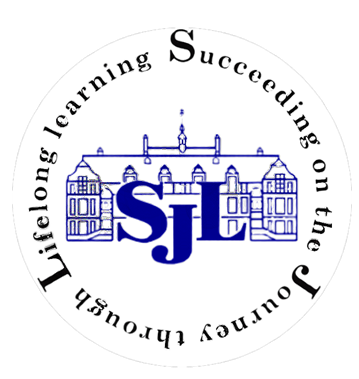Science
At Sir John Lillie Primary School, we use a variety of teaching and learning styles in science lessons.
Our aim is to develop children’s knowledge, skills and understanding of scientific concepts. This is done through different scientific investigations when possible, as well as by using secondary sources at times. In our science lessons, we use scientific vocabulary and students are encouraged to explain scientific phenomena using specific scientific vocabulary. The vocabulary is displayed on our science walls so children can refer back to them if needed.
At our school, we use the Developing Experts scheme of work to plan our science lessons. The contents of the scheme is adapted to suit the needs of all of our children. We strongly believe that learning should happen beyond the classroom walls. That is why regular trips are organised as well as inspiring visitors, such as STEM ambassadors, are invited to school to further enthuse children about science.
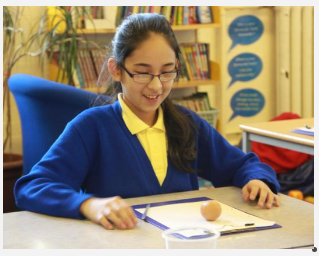
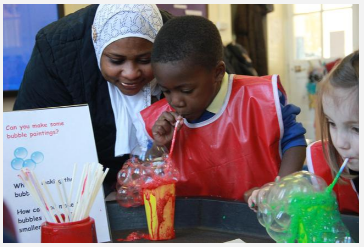
At Sir John Lillie Primary School, we encourage children to ask their own scientific questions and help them find the answers using a range of ‘Working Scientifically’ skills such as:
Key Stage 1
- asking simple questions and recognising that they can be answered in different ways
- observing closely, using simple equipment
- performing simple tests
- identifying and classifying
- using their observations and ideas to suggest answers to questions
- gathering and recording data to help in answering questions
Lower Key Stage 2
- asking relevant questions and using different types of scientific enquiries to answer them
- setting up simple practical enquiries, comparative and fair tests
- making systematic and careful observations and, where appropriate, taking accurate measurements using standard units, using a range of equipment, including thermometers and data loggers
- gathering, recording, classifying and presenting data in a variety of ways to help in answering questions
- recording findings using simple scientific language, drawings, labelled diagrams, keys, bar charts, and tables
- reporting on findings from enquiries, including oral and written explanations, displays or presentations of results and conclusions
- using results to draw simple conclusions, make predictions for new values, suggest improvements and raise further questions
- identifying differences, similarities or changes related to simple scientific ideas and processes
- using straightforward scientific evidence to answer questions or to support their finding
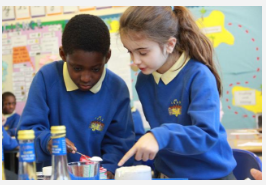
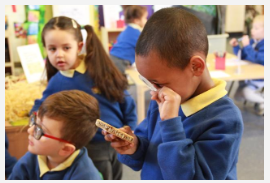
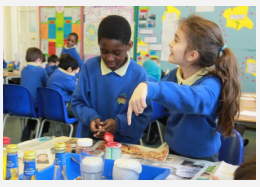
Upper Key Stage 2
- planning different types of scientific enquiries to answer questions, including recognising and controlling variables where necessary
- taking measurements, using a range of scientific equipment, with increasing accuracy and precision, taking repeat readings when appropriate
- recording data and results of increasing complexity using scientific diagrams and labels, classification keys, tables, scatter graphs, bar and line graphs
- using test results to make predictions to set up further comparative and fair tests
- reporting and presenting findings from enquiries, including conclusions, causal relationships and explanations of and a degree of trust in results, in oral and written forms such as displays and other presentations
- identifying scientific evidence that has been used to support or refute ideas or arguments
We help students record their findings in a range of ways such as pictures, graphs, tables, diagrams, etc. and teach them how to interpret their results.
If you come to our classrooms, you will see our scientific work displayed on ‘Science Walls’ or in our books.
In our school we try to use our outside grounds as well as our local area on a regular basis to carry out hands-on science lessons.
Types of enquiry:
- observing over time
- pattern seeking
- identifying, classifying and grouping
- comparative and fair testing
- researching using secondary sources
